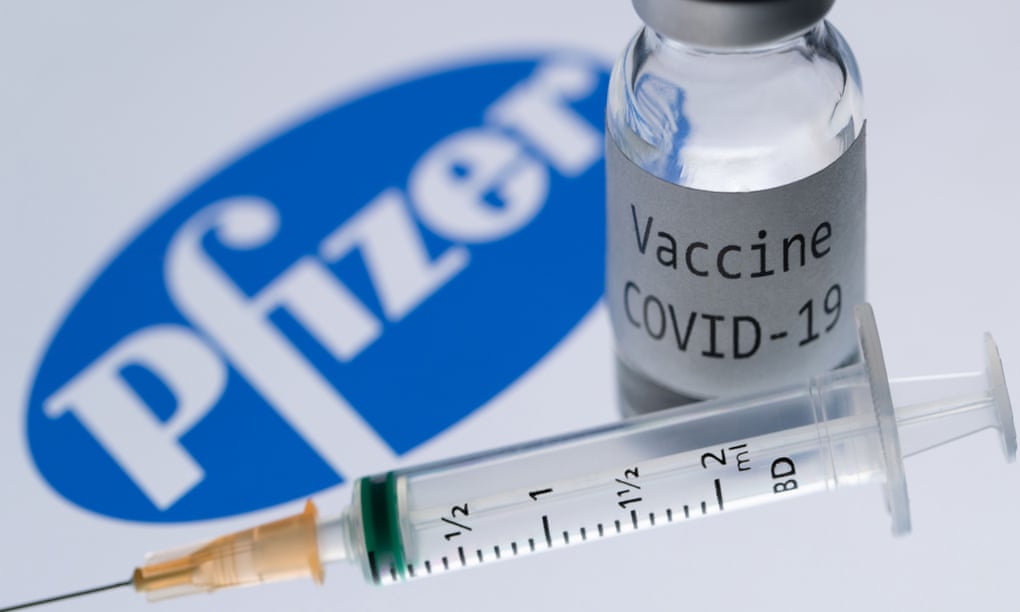The UK has become the first western country to license a vaccine against Covid, opening the way for mass immunisation with the Pfizer/BioNTech vaccine to begin in those most at risk next week.
The vaccine has been authorised for emergency use by the Medicines and Healthcare Products Regulatory Authority (MHRA), ahead of decisions by the US and Europe. The MHRA was given power to approve the vaccine by the government under special regulations before 1 January, when it will become fully responsible for medicines authorisation in the UK after Brexit.
The first doses of the vaccine will arrive in the coming days, said the company. The UK has bought 40m doses of the vaccine, which has been shown to have 95% efficacy in its final trials.
A Department of Health and Social Care spokesman said: “The government has today accepted the recommendation from the MHRA to approve Pfizer/BioNTech’s Covid-19 vaccine for use.
 Source: https://currencyrate.today/converter-widget
Source: https://currencyrate.today/converter-widget“This follows months of rigorous clinical trials and a thorough analysis of the data by experts at the MHRA who have concluded that the vaccine has met its strict standards of safety, quality and effectiveness.
“The joint committee on vaccination and immunisation will shortly also publish its latest advice for the priority groups to receive the vaccine, including care home residents, health and care staff, the elderly and the clinically extremely vulnerable. The vaccine will be made available across the UK from next week.”
Albert Bourla, the chairman and chief executive officer of Pfizer added: “Today’s emergency use authorisation in the UK marks a historic moment in the fight against Covid-19. This authorisation is a goal we have been working toward since we first declared that science will win, and we applaud the MHRA for their ability to conduct a careful assessment and take timely action to help protect the people of the UK.
“As we anticipate further authorisations and approvals, we are focused on moving with the same level of urgency to safely supply a high-quality vaccine around the world. With thousands of people becoming infected, every day matters in the collective race to end this devastating pandemic.”
Although the vaccine has to be kept at -70C, the companies say it can be stored for up to five days in a fridge, at 2-8°C. The first priority groups for vaccination are care home residents, who may not be able to come to a vaccination centre, together with the staff who look after them. At fridge temperatures, it may be possible for the vaccine to be brought to them. Next in line will be the over-80s and NHS staff.
The trial data showed the vaccine had equal efficacy among younger volunteers and those over 65 who are most at risk from Covid. Gender, race and ethnicity also made no difference.
Pfizer and BioNTech say their combined manufacturing network has the potential to supply globally up to 50m vaccine doses in 2020 and up to 1.3bn doses by the end of 2021.
The delivery of the UK’s 40m doses will start immediately. The health secretary, Matt Hancock, has said he expects 10m doses to arrive this year. Delivery will continue throughout 2020 and 2021 in stages “to ensure an equitable allocation of vaccines across the geographies with executed contracts,” say the companies.
The US, which has ordered 100m doses, and Europe, which has bought 200m, are expected to approve the vaccine within weeks.
The MHRA has moved with unprecedented speed to grant emergency use authorisation within just a week, having received the final data from the companies on 23 November. It has been carrying out a rolling approval process, scrutinising data from early trials as they came in.
“The emergency use authorisation in the UK will mark the first time citizens outside of the trials will have the opportunity to be immunised against Covid-19,” said Ugur Sahin, the CEO and co-founder of BioNTech.
“We believe that the rollout of the vaccination programme in the UK will reduce the number of people in the high-risk population being hospitalised. Our aim is to bring a safe and effective vaccine upon approval to the people who need it. The data submitted to regulatory agencies around the world are the result of a scientifically rigorous and highly ethical research and development programme.”
Sarah Boseley Global health editor, The Guardian.















No Comment